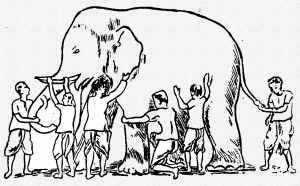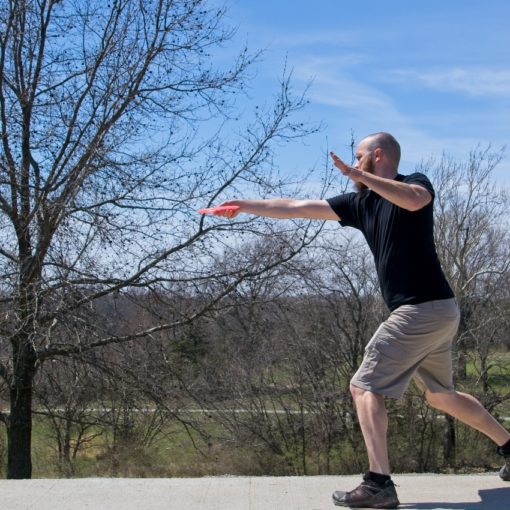Good afternoon brothers and sisters, for those of you who don’t know me, my name is Cory Sharp. Believe it or not this is the very first time I have ever given a talk in Church, so I’m a little anxious that I can actually say something that can be helpful in any way to anyone. I was asked to talk about whichever General Conference talk I liked the most, the one that stood out the most to me was President Uchtdorf’s talk in the first session on Saturday. In this talk, President Uchtdorf addresses those who are both interested in the Church, and those who, unfortunately, leave the Church, he gives a variety of examples of the questions or concerns people may have, and I would like to relate some of the thoughts I have had on the subject. When addressing those members who leave the church he states: “One might ask, ‘if the gospel is so wonderful, why would anyone leave?’ Sometimes we assume it is because they have been offended or lazy or sinful. Actually it is not that simple. In fact, there is not just one reason that applies to the variety of situations. Some of our dear members struggle for years with the question whether they should separate themselves from the Church.” I know this is true as my own mother has told me that she struggled with her decision to leave the Church from when I was about 2 years old, but we didn’t stop going to Church until I was 11. President Uchtdorf goes on to say that “Some struggle with unanswered questions about things that have been done or said in the past. We openly acknowledge that in nearly 200 years of Church history-along with an uninterrupted line of inspired, honorable, and divine events-there have been some things said and done that could cause people to question.” The last sentence in this quote to me is very important, the key word is “could”, the way I interpret this is; if the things that have been said and done are misrepresented or misinterpreted, they “could” cause people to question the truthfulness of the Church. There is a poem that I think demonstrates quite well the idea that not telling the whole story can lead to missing the whole truth entirely
The Blind Men and the Elephant:
It was six men of Indostan
To learning much inclined,
Who went to see the Elephant
(Though all of them were blind),
That each by observation
Might satisfy his mind.
The First approached the Elephant,
And happening to fall
Against his broad and sturdy side,
At once began to bawl:
“God bless me! But the Elephant
Is very like a WALL!”
The Second, feeling of the tusk,
Cried, “Ho, what have we here,
So very round and smooth and sharp?
To me ‘tis mighty clear
This wonder of an Elephant
Is very like a SPEAR!”
The Third approached the animal,
And happening to take
The squirming trunk within his hands,
Thus boldy up and spake:
“I see,” quoth he, “the Elephant
Is very like a SNAKE!”
The Fourth reached out an eager hand,
And felt about the knee
“What most this wondrous beast is like
Is mighty plain,” quoth he:
“Tis clear enough the Elephant
Is very like a TREE!”
The Fifth, who chanced to touch the ear,
Said: “Even the blindest man
Can tell what this resembles most;
Deny the fact who can,
This marvel of an Elephant
Is very like a FAN!”
The Sixth no sooner had begun
About the beast to grope,
Then, seizing on the swinging tail
That fell within his scope,
“I see,” quoth he, “the Elephant
Is very like a ROPE!”
And so these men of Indostan
Disputed loud and long,
Each in his own opinion
Exceeding stiff and strong,
Though each was partly in the right,
And all were in the wrong!
President Uchtdorf has said about this very poem; “That someone could make a judgment based on one aspect of truth and apply it to the whole seems absurd or even unbelievable.” And yet we, as humans, are constantly making assumptions about people and things. This leads us incorrectly to the conclusion that we know the truth. For me, since I came back to the Church, this has been the most recurring concept. It has always been and interest of mine to hear what is being said about the Church, I like being able to know what either non-members, inactive or “ex” members are going to throw at me if the subject ever comes up, which believe me, it does. I have had family members, co-workers and friends all throw different statements and supposed “facts” at me with the intent to shock me into realizing that the Church is not true. Yes, there have been things said and done throughout our Churches history that “could” cause people to question their faith, this cause is most often when anti-Mormons prey on a lack of information, or misinformation several of us have about different aspects of Church history or Church doctrines. They have an agenda, and it is to destroy God’s Church and pull believers away from their faith… Believe me, anybody with an agenda like that has no problem twisting all the things mortal men and women have said or done into something that accomplishes their goal, whether they are telling the whole story or not. They will make short, blanket statements that are worded in a way that shocks the listener into questioning, if this ever happens to you please don’t panic, don’t let their half-truths fester in your mind and eat a hole through your testimony of this Church. Remember President Uchtdorf’s council; to “Doubt your doubts before you doubt your faith.” I am here to tell you that there are so many different things that are truly at work when it comes to both the history of the Church or the historical accuracy of the Book of Mormon. Culture is a HUGE aspect of a lot of these supposed “issues” that people rarely take in to consideration, they wrongfully assume that the cultural norms we have today are absolute truths or that they have been this way since Adam and Eve walked the Earth, that anything different from what we are accustomed to is somehow wrong. Those who would have you abandon your testimony use this natural assumption we make against us, they attach our current culture to the cultures of the past, which can lead you to believe that an act or statement someone made even 100 years ago means the same thing that it would if the same act or statement were made in the present day… This is a gross error and can lead you to a false conclusion about the character and morals of a person from a different time. Another way anti-Mormon material “could” cause you to question is by setting up impossible standards for the perfectly imperfect mortals that are called to lead God’s Church, they lead you to believe that if someone were truly called of God, truly inspired by our Heavenly Father, they would never do or say something that God would not approve of, in other words, they would never sin or make a mistake. These sorts of attacks even come from people who claim to be Christians, who read the Bible and believe its words. They seem to conveniently forget that the Bible is not short of prophets and apostles who make human errors and poor judgments; Christ Himself was constantly reproving the twelve apostles. These people never question whether any of these prophets were truly called of God, but then turn and unfairly judge modern-day prophets and apostles who make mistakes. To quote Jeffrey R. Holland; “be kind regarding human frailty – your own as well as that of those who serve with you in a Church led by volunteer, mortal men and women. Except in the case of His only perfect Begotten Son, imperfect people are all God has ever had to work with. That must be terribly frustrating to Him, but He deals with it. So should we. And when you see imperfections, remember that the limitation is not in the divinity of the work.” The secular world is relentless in its attempt to tear people away from the truth, if they can’t scare you with their misrepresentations of Church history, they will then turn and attack the historical accuracy of the Book of Mormon, using arguments about “a lack of archeological evidence” to try to convince people that the Book of Mormon is a work of fiction, unfortunately for them, several of their precious “evidences” against the Book of Mormon are slowly but surely diminishing in light of new information and discoveries. For me, it wouldn’t matter at all if we never found one bit of physical, archeological evidence that supports the miracle that is the Book of Mormon. When I read about all of the miracles that happened throughout the Bible, I have noticed that not one of them has been able to be proven scientifically, most believers don’t mind that we cannot prove them; they recognize that God requires all of us to walk by faith, not signs. I believe that God doesn’t allow His miracles to be proven the way so many want them to be, because what good does it do a person to be compelled or coerced into a knowledge of God? We are here to be tested! The Book of Abraham says “And we will prove them herewith, to see if they will do all things whatsoever the Lord their God shall command them;” We prove ourselves to God when we willingly choose to have faith that He lives, that this is His Church… I testify to you that the coming forth of the Book of Mormon is the most important miracle that God has given us since He gave us His only Begotten Son. I encourage you that if you are someone who is seeking after a sign, stop. It will only cause you more harm in the end. President Uchtdorf’s talk continues to encourage everyone that there is “yet a place for you here.” The example he gives that I like the most is when he says; “Some might say, ‘I know a member of your Church who is a hypocrite. I could never join a church that had someone like him as a member.’ If you define hypocrite as someone who fails to live up perfectly to what he or she believes, then we are all hypocrites. None of us is quite as Christlike as we know we should be. But we earnestly desire to overcome our faults and the tendency to sin. With our heart and soul we yearn to become better with the help of the Atonement of Jesus Christ.” This Church has the light of the everlasting gospel, the pure doctrine of Christ, the word of God “Which healeth the wounded soul.” The things that really matter such as these sadly are not often the focus of our attention… So why focus on the things that, when properly understood, don’t really matter? There is a quote that I think perfectly fits this predicament; “Though argument does not create conviction, lack of it destroys belief. What seems to be proved may not be embraced; but what no one shows the ability to defend is quickly abandoned. Rational argument does not create belief, but it maintains a climate in which belief may flourish.” The questions people have about Church history or the historical accuracy of the Book of Mormon, when fairly and thoroughly examined, constitute rational argument, it will likely not convince you of the truthfulness of this Church but it can create a climate that allows you to move forward unhindered in your search for a personal testimony. Jeffrey R Holland has put it this way; “Brothers and sisters, this is a divine work in process, with the manifestations and blessings of it abounding in every direction, so please don’t hyperventilate if from time to time issues arise that need to be examined, understood, and resolved. They do and they will. In this Church, what we know will always trump what we do not know. And remember, in this world, everyone is to walk by faith.” With all this in mind, it is important for us as members not to perpetuate misconceptions and half-truths that exist about the Church; it only gives strength to those who seek its collapse. If you are in a situation where questions are asked about anything that has to do with this Church, and you are unsure of the answer, do not just come up with something to say just for the sake of saying something… This can likely only make things worse for the investigator. Dallin H. Oaks has said “When attacked by error, truth is better served by silence than by a bad argument.” I encourage you to educate yourself as best you can if you want to defend the different aspects of the Church that are constantly attacked, find out the facts if there are facts to be known and don’t assume a position for the Church that the Church itself does not assume… There are several things that have no answers yet, and when it comes to these things we need to show our patience, we need to understand that for everything that is of the utmost importance, we do have the answers. I would like to end my talk by bearing my testimony:





